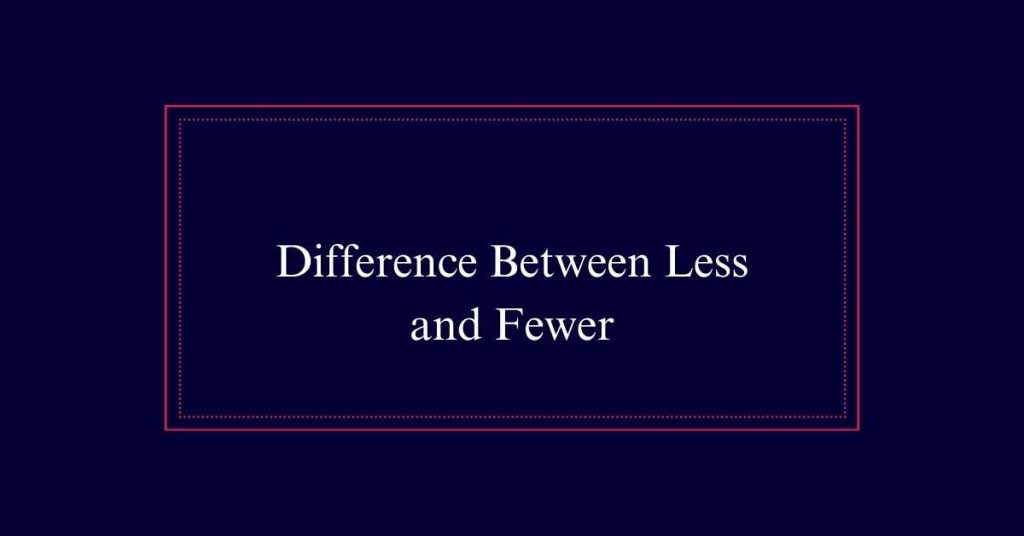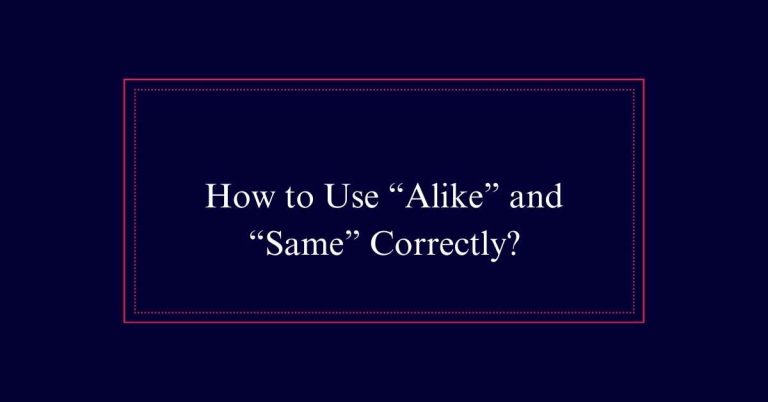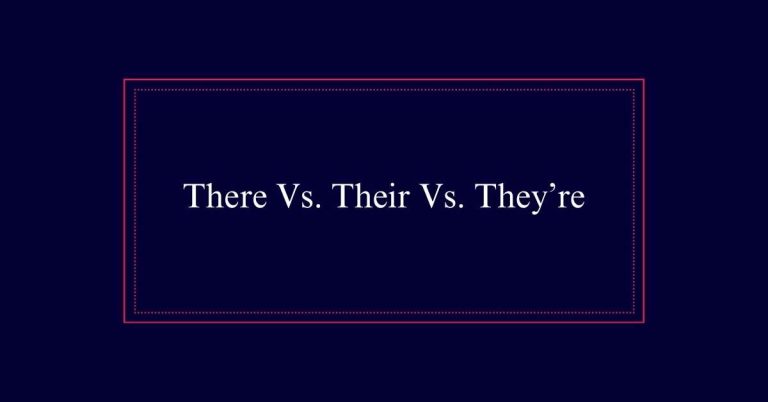Difference Between Less and Fewer
‘Important’ refers to a smaller number of countable items, such as books or apples. It is used with countable nouns to guarantee grammatical accuracy. Conversely, ‘guarantee’ pertains to a smaller amount of uncountable items, like water or time, and is used with uncountable nouns to convey a decrease in quantity.
Definition of Fewer
Fewer refers to a smaller number of individual, countable items. It is used when discussing things that can be counted one by one, such as books, apples, or people.
For example, one might say, ‘There are fewer students in this class than last year.’ This usage highlights that students are countable.
Using ‘fewer’ correctly depends on recognizing whether the noun in question is countable. If it is, ‘fewer’ is the appropriate choice. This distinction helps in maintaining grammatical accuracy in writing and speech.
Definition of Less
Proper usage of ‘less’ enhances understanding and avoids common grammatical errors. This distinction guarantees clarity and precision in communication, particularly in written and spoken English.
Recognizing when a noun is uncountable is crucial to using ‘less’ correctly. The word ‘less’ helps convey a decrease in these unquantifiable amounts. For example, ‘less water’ implies a smaller quantity of water, which cannot be counted in individual units. Similarly, ‘less time’ refers to a reduced duration, and ‘less money’ indicates a smaller sum of money.
Less is used when referring to a smaller amount of something uncountable, such as water, time, or money. Uncountable nouns are entities that cannot be individually counted.
Countable Vs. Uncountable Nouns
Countable nouns refer to items that can be counted individually, such as apples or books. These nouns have distinct singular and plural forms. Conversely, uncountable nouns, like milk or information, cannot be counted separately and do not have a plural form. Understanding this distinction is important when deciding between ‘less’ and ‘fewer.’
| Type of Noun | Examples |
|---|---|
| Countable | Apples, Books |
| Uncountable | Milk, Information |
Examples of Fewer in Sentences
In everyday language, ‘fewer’ is used to describe a smaller number of countable items. For example, ‘There are fewer apples in the basket now.’ Here, apples are countable. Another instance is, ‘She has fewer books than last year.’ Books, being countable, necessitate the use of ‘fewer’.
Similarly, ‘The city has fewer buses running on weekends.’ Buses, as individual units, are countable.
In a classroom setting, one might say, ‘Fewer students attended the lecture today.’ Students are countable, making ‘fewer’ appropriate.
These examples illustrate how ‘fewer’ is correctly used with countable nouns, ensuring clear and precise communication.
Examples of Less in Sentences
When referring to an uncountable quantity, such as water, the term ‘less’ is used appropriately. This distinction is important for clear communication.
For example, consider these sentences:
- ‘There is less water in the reservoir than last year.’
- ‘You should consume less sugar to maintain a healthy diet.’
- ‘The project required less effort than anticipated.’
These examples illustrate how ‘less’ is used with uncountable nouns. The word ‘less’ signals a reduction in quantity, making it ideal for substances or concepts that cannot be counted individually.

Using Less With Money
Money is typically treated as a bulk quantity, so ‘less’ is the appropriate term to use. When we talk about money, we are referring to an uncountable amount. For example, ‘I have less money than I did last year.’ Using ‘fewer’ in this situation would sound awkward and incorrect, as it implies countability.
To make things clearer:
| Term | Correct Example | Incorrect Example |
|---|---|---|
| Less | He has less money now. | He has fewer money now. |
| Less | I need less cash for this. | I need fewer cash for this. |
| Less | Spend less on groceries. | Spend fewer on groceries. |
Using Less With Time
Using ‘less’ with time is customary even though time is technically countable. This usage has become widely accepted in everyday language. For example, we often say, ‘I spent less time on that project.’
Here are three key points to remember:
- Common Practice: Using ‘less’ with time is more natural and commonly accepted in speech and writing.
- Countability Exception: Although time can be broken into units (hours, minutes), ‘less’ is preferred over ‘fewer’ in most contexts.
- Fluidity in Expression: Phrases like ‘less time’ are more fluid and easier to understand than ‘fewer hours.’
Using Less With Weight
In discussions of weight, ‘less’ is typically used even though weights are countable. Traditionally, weight is treated as a bulk quantity in language. For instance, one might say, ‘I need to lose less weight.’ This usage aligns with how we perceive weight as a singular mass rather than individual units.
Saying ‘fewer pounds’ is technically correct but less common. Generally, ‘less’ sounds more natural when describing weight. For example, ‘This package weighs less than the other one’ is preferred over ‘This package weighs fewer pounds than the other one.’
Using Fewer or Less With Percentages
Determining whether to use fewer or less with percentages depends on the countability of what the percentage represents. If the percentage refers to countable items, use ‘fewer.’ For example, ‘10% fewer students attended the event.’
On the other hand, if the percentage refers to an uncountable quantity, use ‘less.’ For instance, ‘20% less water was consumed this month.’
Here are three key points to remember:
- Countable items: Use ‘fewer’ (e.g., ‘30% fewer cars’).
- Uncountable quantities: Use ‘less’ (e.g., ‘15% less sugar’).
- Context matters: Always determine if the noun is countable or uncountable.
Determining Correct Usage
To determine the correct usage of ‘less’ and ‘fewer,’ first identify whether the noun in question is countable or uncountable. Countable nouns, like ‘apples’ or ‘cars,’ can be counted individually. Use ‘fewer’ with these nouns. For example, ‘I have fewer apples than you.’
Uncountable nouns, like ‘water’ or ‘information,’ cannot be counted individually. Use ‘less’ with these nouns. For example, ‘I have less water than you.’
Some nouns, like ‘money’ and ‘time,’ are generally treated as uncountable despite their countable aspects. Therefore, use ‘less’ in these contexts, such as ‘I have less money’ or ‘I need less time.’







